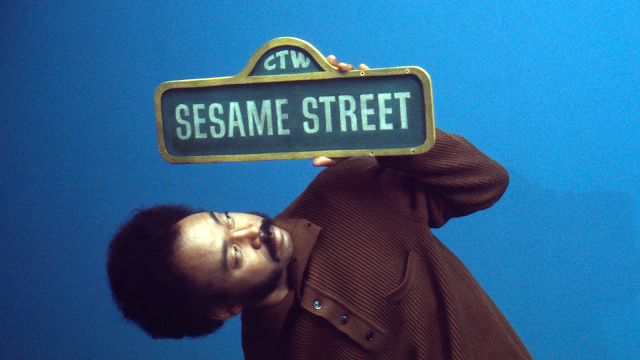Directed by Marilyn Agrelo
ChinoKino score: A
Review by Allan Tong
Chances are you grew up watching Sesame Street and/or your children watch it now. Its blend of entertainment and education charms pre-schoolers into teaching them the alphabet and counting, and yet is smart enough to entice grown-ups. Sesame Street deserves to be a global phenomenon for the last 52 years and 4,561 episodes (and counting), and this superb documentary explains how this happen.
Circle back to the late-1960s when a TV producer named Joan Ganz Cooney and a Carnegie Foundation exec and psychologist, Lloyd Morrisset, were alarmed that children, especially Black ghetto kids, knew how to sing beer commercials before they could recite the alphabet. Why not use the power of TV to educate? That was a revolutionary idea, but also a gamble. Ganz gave free reign to free-spirited creatives, who were riding the experimental vibe of the sixties. They were led by director Jon Stone and puppeteer Jim Henson.
Stone was disillusioned with TV, but like Cooney was an activist and understood her vision for this show. Stone saw a PSA shot in the streets of Harlem and decided to set the series on those stoops, which gave the show an identity light years from any previous children's show. Going further, the show featured a multiracial cast of Blacks, Latinos and whites that was revolutionary for its time and (sadly) decades to come. Stone's masterstroke was inviting Henson to come on board. Actually, Henson had only done puppetry for adults on TV, but was game to adjust for children.
Throw in a mix of dazzling animation, Big Bird and hip musical guests from Stevie Wonder to Johnny Cash, and Sesame Street became an instant smash. Even folks like Muhammad Ali were signing its praises.
Street Gang does an admirable job tracing the origin of Sesame Street, relying on fresh interviews with Ganz and Morrisset, plus vintage footage of the late Stone and Henson, and interviews with their families. To say that Sesame Street caused a sensation in the 1970s is no understatement. This era is vividly recounted by cast members, puppeteers, writers, composers and cameramen. The head writer recalls that blending entertainment and education was a tough task, but the key was comedy. Other highlights include the show's composers recalling how and why they wrote signature songs including It's Not Easy Being Green, which is loaded with various meanings for adults and children.
The secret to Sesame Street was in never talking down to its young audience, nor was it afraid to expose the darker side of reality (to a measured degree). Oscar the Grouch was an example, as was the 1982 death of the grandfather character, Mr. Hopper, which the writers and cast handled with touching sensitivity and sincerity.
Stone is portrayed as a dark visionary and depressive who never felt he received enough recognition. The film doesn't really resolve his story, though it does conclude Henson's who sadly died in 1990 of natural causes. In fact, Street Gang doesn't really have an ending, and completely omits the show's latter-day struggles to stay on PBS. Today, HBO is Sesame Street's main home and is also a producer of this documentary. Perhaps including this fact would appear self-serving.
However, these criticisms are minor in the face of this fascinating film about a brilliant show. Long live Sesame Street.
Street Gang is available on VOD starting today.


No comments:
Post a Comment